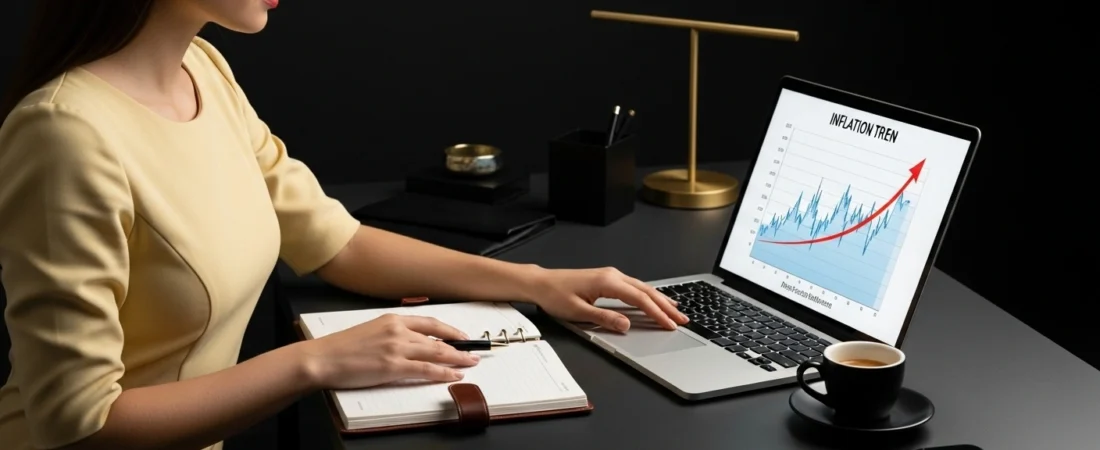Inflation is a word you hear in the news and see in headlines, but its real impact can often feel abstract. For most of us, it becomes very real at the grocery store, at the gas pump, and when we pay our monthly bills. Simply put, inflation is a sustained increase in the general prices of goods and services over time. This increase means that a dollar today buys less than a dollar did yesterday. It is a natural part of a growing economy, but when it rises too quickly, it can directly affect your ability to save and live comfortably. Understanding how it works is the first step toward protecting your personal finances.
The Core Concept: Less Buying Power
Think of your money as having a certain amount of buying power. If a gallon of milk costs $3.00 today and the rate of inflation is 3%, that same gallon of milk will likely cost a little more than $3.00 a year from now. Your dollar has not changed in value, but its purchasing power has. Over time, that slight increase adds up, which is why your parents or grandparents might tell stories of buying a new car for a fraction of what it costs today. It is not that their money was worth more back then; it is that the prices of goods and services were lower.
This effect is why inflation is sometimes called a “hidden tax.” It quietly erodes the value of your savings and your future income if you are not careful. A dollar stored under your mattress today will not buy as much in ten years. This reality highlights the importance of making your money work for you.
How Inflation Affects Your Money
Inflation touches almost every part of your financial life.
- Your Savings: The money you have sitting in a traditional savings account is one of the first things inflation affects. If your bank is paying you an interest rate of 1% on your savings, but inflation is running at 3%, your money is actually losing purchasing power over time. You are earning a return, but it is not enough to keep up with the rising cost of goods. This is why financial experts often advise against holding large sums of cash for extended periods.
- Your Investments: A key reason people invest is to grow their money faster than the rate of inflation. Investments like stocks and real estate have historically shown returns that outpace inflation over the long term. This growth helps your money maintain and even increase its buying power. For example, a stock that appreciates at a rate of 7% a year is beating a 3% inflation rate, so you are actually increasing your wealth.
- Your Spending: Day-to-day spending is where most people feel the immediate pinch of inflation. When prices rise for essentials like food, housing, and gas, a larger portion of your income goes to these basic needs. This leaves you with less money for savings, investing, and discretionary spending. You might find yourself cutting back on things you once considered normal just to make ends meet.
Taking Action to Protect Your Finances
While you cannot stop inflation, you can take steps to protect your financial health from its effects.
- Invest Your Money: A well-diversified portfolio is one of the most powerful tools against inflation. By investing in things that tend to increase in value, such as a mix of stocks and bonds, you give your money a chance to grow at a rate that is higher than the rate of inflation.
- Negotiate Your Salary: Over time, your salary must increase to keep pace with the rising cost of living. When you negotiate for a raise, be sure to consider the effects of inflation. Your salary needs to grow not only to reflect your improved skills and experience but also to maintain your buying power.
- Manage Your Debt: Inflation can make it harder to pay off debts, especially those with variable interest rates. When you have more debt, a greater portion of your income goes to interest payments and a smaller portion goes to saving and investing. Working to pay down high-interest debt can free up more of your money to use in a way that helps you grow your wealth.
External Resources :
How to Protect Your Finances From Inflation – NerdWallet
Learn how to budget, invest, and plan during inflationary periods.
What Is Inflation and How It Works – Investopedia
A detailed overview of inflation’s causes, types, and economic effects.
